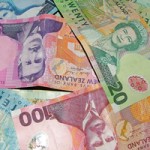Gold fell on Wednesday, ending three days of gains, as the dollar and equity markets advanced, but held ground near a three-week high on persisting uncertainty over Greeces future in the Eurozone. Silver, platinum and palladium declined as well. Copper hovered near the lowest in more than four years as tumbling oil prices hit broader confidence in the commodity market.
Comex gold for delivery in February dropped 0.58% to $1 212.3 per troy ounce by 12:10 GMT, having shifted in a daily range of $1 219.4 and $1 211.1. The precious metal edged up 1.28% on Tuesday to $1 219.4, a third consecutive daily gain, but not before it touched its highest since December 16th at $1 223.3.
Investors awaited the release of minutes from Feds December 16-17 meeting to scour for clues of when the Federal Reserve might begin to gradually raise interest rates, having said it will be “patient” in considering the timing of the first hike since 2006.
The precious metal drew support in recent days as global equities fell amid concerns over Greece’s unlikely, but possible, exit from the Eurozone, sparking safe-haven bids for bullion.
The Syriza party, which according to polls will have a lead in the elections on January 25, has promised to wipe out the majority of the country’s debt, while also leading Greece out of the 19-member region.
Carsten Menke, an analyst at Julius Baer, said, cited by CNBC: “Prices recovered above $1,200 as all these worries about Greeces future in the euro zone increased some safe-haven bids, but unless the situation worsens, this should just give temporary support to gold.”
Weaker-than-expected economic data from the US on Tuesday also helped the precious metal remain above the $1 200 mark. Manufactured goods marked a fourth monthly decline in November, while a separate report showed that the services sector grew slower than expected in December.
However, the US dollar remained firm near the highest in nine years against the euro and a basket of major trading peers. The US dollar index for settlement in March was up 0.51% at 92.210 at 12:10 GMT, having earlier risen to a new mutli-year high of 92.290. The US currency gauge gained 0.13% on Tuesday to 91.738. A stronger greenback makes dollar-denominated commodities more expensive for holders of foreign currencies and curbs their appeal as an alternative investment, and vice versa.
Adding to pressure, assets in the SPDR Gold Trust, the biggest bullion-backed ETF, fell 2.99 tons on Tuesday to 707.82 tons, the lowest since September 2008. Holdings fell 11% last year compared to a 41% drop in 2013.
Copper
Copper held near the lowest in four years as global business growth eased the most in a year in December, fueling concerns about demand from top consumers. Oil prices at fresh lows denting confidence toward commodities, coupled with political uncertainty surrounding Greece, further pressured the red metal.
Comex copper for delivery in March traded 0.29% lower at $2.7590 per pound at 12:10 GMT. Prices ranged in a daily range between $2.7695 and $2.7480, close to Mondays intraday low of $2.7440, the weakest level since October 2009.
The continuing oil rout fueled fears among investors of broader commodity sell-offs, curbing risk appetite and paving the way for more downside movement.
Dominic Schnider of UBS Wealth Management in Hong Kong, said for CNBC: “Its easy to blame oil, but I think clearly Greece was (also) one of the key issues, and the numbers towards the end of the year from China were on the weak side.”
Data released yesterday showed that business activity in the Eurozone grew less than projected in December, while the US achieved slower-than-projected growth as well.
Overall, business activity in China expanded at a faster pace in December thanks to a healthier services sector, but a fractional decline in output at manufacturers spurred speculations for softer demand for base metals.
Meanwhile, concerns of oversupply this year were exacerbated as China introduced a new export tax rebate for some copper products, which might increase shipments as much as tenfold. Beijing hiked the export tax rebate for copper foils by 4% to 17%, while adding a 9% rebate for shipments of bars, rods and profiles.





